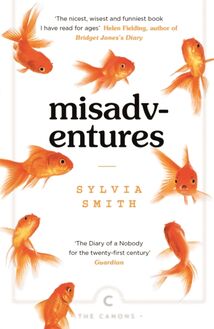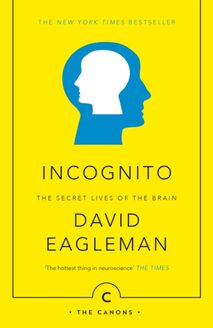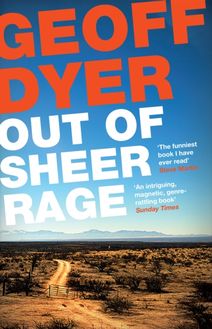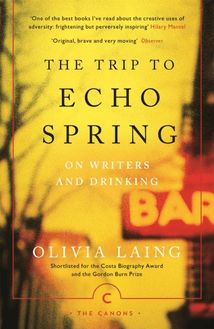-
 Univers
Univers
-
 Ebooks
Ebooks
-
 Livres audio
Livres audio
-
 Presse
Presse
-
 Podcasts
Podcasts
-
 BD
BD
-
 Documents
Documents
-
- Cours
- Révisions
- Ressources pédagogiques
- Sciences de l’éducation
- Manuels scolaires
- Langues
- Travaux de classe
- Annales de BEP
- Etudes supérieures
- Maternelle et primaire
- Fiches de lecture
- Orientation scolaire
- Méthodologie
- Corrigés de devoir
- Annales d’examens et concours
- Annales du bac
- Annales du brevet
- Rapports de stage
La lecture à portée de main
Vous pourrez modifier la taille du texte de cet ouvrage
Découvre YouScribe en t'inscrivant gratuitement
Je m'inscrisDécouvre YouScribe en t'inscrivant gratuitement
Je m'inscrisEn savoir plus
Vous pourrez modifier la taille du texte de cet ouvrage
En savoir plus

Description
Informations
| Publié par | Canongate Books |
| Date de parution | 02 juin 2022 |
| Nombre de lectures | 0 |
| EAN13 | 9781838857189 |
| Langue | English |
Informations légales : prix de location à la page 0,0400€. Cette information est donnée uniquement à titre indicatif conformément à la législation en vigueur.
Extrait
Dame Margaret Drabble was born in Sheffield in 1939 and was educated at Newnham College, Cambridge. She is the author of twenty highly acclaimed novels. She has also written biographies and screenplays, and was the editor of the Oxford Companion to English Literature . She was appointed CBE in 1980, and made DBE in the 2008 Honours list. She was also awarded the 2011 Golden PEN Award for a Lifetime s Distinguished Service to Literature. She is married to the biographer Michael Holroyd.
Also by Margaret Drabble
FICTION
A Summer Bird-Cage
The Garrick Year
The Millstone
Jerusalem the Golden
The Waterfall
London Consequences (group novel)
The Realms of Gold
The Ice Age
The Middle Ground
The Radiant Way
A Natural Curiosity
The Gates of Ivory
The Witch of Exmoor
The Peppered Moth
The Seven Sisters
The Red Queen
The Sea Lady
The Pure Gold Baby
The Dark Flood Rises
SHORT STORIES
A Day in the Life of a Smiling Woman: The Collected Stories
NON-FICTION
Wordsworth (Literature in Perspective series)
Arnold Bennett: A Biography
For Queen and Country
A Writer s Britain
The Oxford Companion to English Literature (editor)
Angus Wilson: A Biography
The Pattern in the Carpet
The Canons edition published in Great Britain in 2022 by Canongate Books
canongate.co.uk
First published in hardback in Great Britain in 1972 by
Weidenfeld & Nicolson
Published in paperback in 2011 by Penguin Classics
This digital edition first published in 2022 by Canongate Books
Copyright Margaret Drabble, 1972
The right of Margaret Drabble to be identified as the author of this work has been asserted by her in accordance with the Copyright, Designs and Patents Act 1988
British Library Cataloguing-in-Publication Data
A catalogue record for this book is available on request from the British Library
ISBN 978 1 83885 717 2
eISBN 978 1 83885 718 9
For my parents
I would like to thank all the lawyers who talked to me about this book, and also Hilary Dunkley, who introduced me to the identification of flora.
The fascination of what s difficult
Has dried the sap out of my veins, and rent
Spontaneous joy and natural content
Out of my heart
W. B. Yeats
CONTENTS
Part One
He stood there
Part Two
As the weeks
PART ONE
He stood there and waited. He was good at that. There was no hurry. There was plenty of time. He always had time. He was a punctual and polite person, and that was why he was standing there, buying a gift for his hostess. Politeness was an emotion - could one call it an emotion, he wondered? That was how he regarded it, certainly - an emotion that he both feared and understood.
There was only one woman in front of him in the off-licence, and she was certainly in no hurry either. She had not even got round to asking for anything yet, because she was too busy telling the man behind the counter about her granddaughter. Two weeks old, this child was, and the lady had just finished knitting her a pram-cover in stripes of white and blue: it didn t matter that it was blue and not pink, the daughter had said, she didn t like pink anyway. The man behind the counter was interested in the story: not merely polite, but interested. One can tell the difference. The woman was short and broad and she was wearing bedroom slippers. What raffish districts of London his friends inhabited: NW1, this was, with all its smart contrasts. They depressed him unbearably, the well-arranged gulfs and divisions of life, the frivolity with which his friends took in these contrasts, the pleasure they took in such abrasions. It appalled him, the complacency with which such friends would describe the advantages of living in a mixed area. As though they licensed seedy old ladies and black men to walk their streets, teaching their children of poverty and despair, as their pet hamsters and guinea pigs taught them of sex and death. He thought of these things, sadly.
Though the old lady did not seem sad. On the contrary, she seemed happy enough, this new grandmother: pleased with herself, pleased with her pram-cover, pleased at the prospect of the evening she was just about to set up for herself - for she embarked, now, on the purchase of one bottle of Guinness, two of pale ale, and one of fizzy orange. The man wrapped them up for her carefully in tissue paper, while she thought about other things that she might want. A box of matches, she decided on, and then (curious order of choice) a packet of ten Players: one might have thought that that would be all, but it wasn t, because her eyes then lit upon the plastic display of crisps, and she thought she d have one of cheese and onion and one of salt and vinegar. Also a bar of chocolate. And while she was at it, a small packet of aspirin. Listening to her, watching her look around this obviously familiar spot for yet more purchases - (nuts? tobacco? small cherries in a jar?) - he felt such violent waves of nostalgia possess him that he nearly spoke. He knew where she came from, this woman: it was a world from which he was forever exiled. But he knew it: he knew its domestic interiors, its pleasures, its horizons. And he knew what she was doing, with her purchases: she was trying to get out of being in that shop the exact experience of being in it, she wanted to exploit it to the full. But imagination failed her: she had to admit defeat. That ll be all, she said, regretfully. In front of them on the counter stood a small gyrating plastic advertisement for a brand of lager: while the man added up her purchases she inspected it, and when he had finished she asked him how it worked. It worked off the light, he said: no battery, no switches, nothing, it just went round and round for ever as long as the shop lights were on. He was proud of it: a new acquisition. She was impressed. She gathered up her bits and pieces and thrust them into her large shabby peeling bag, nodding her approval as she did so. What will they make next, she said. Marvellous, isn t it, said the man. Thanks a lot, Mrs Donovan. Thank you , Mr White. Give my regards to your daughter, Mrs Donovan. She ll be in herself shortly, Mr White, that I ll be sure, said Mrs Donovan, and they both smiled and she shuffled out. Her legs, for so stout a woman, were thin and twiglike, her stockings wrinkled. He felt a pang of loss as she left, and the man turned to him, politely, his expression entirely changed, businesslike, inhuman, obsequious, almost but not quite repudiating the quality of his previous transaction: What would you like, sir? he asked, and Simon, politely, said, Could I have a bottle of Vermouth, please, and twenty Gold Leaf?
There was no point in making any effort: no point in commenting on the weather, or the revolving lager advertisement. He received his purchase in silence, paid in silence, said thank you as one must, and left.
Diana and Nick lived just round the corner, but he thought that he might as well take the car right there with him, so he got back into it and drove himself fifty yards and parked. Diana and Nick: Nick and Diana. Perhaps he would enjoy himself after all. Better than eating alone at home, anyway, and that was surely why they had invited him: or was it out of some more positive desire to corrupt? That would be setting their interest in him too high perhaps, but he couldn t conceal from himself the fact that he had noticed that they (and one or two others) were always pretty quick off the mark to ask him round whenever his wife was away. He would have been touched, if he hadn t been slightly shamed by their alacrity: how had he let them in on it, how had they guessed, when had he so carelessly revealed himself? Not at all, maybe, not at all, surely: it was simple goodwill on their part, there was no need to be suspicious, or if they had an intention to corrupt it was so universal, so benevolent, that it implied no particular knowledge of him or of his circumstances. Old friends, they were, and what more natural than that they should invite him round for an evening while his wife was abroad? Julie herself had probably put them up to it: she had probably given Diana a ring and explained that she was off to New York for a fortnight and what about keeping an eye on poor Simon. The rage that possessed him as he thought of this was so acute and so bitter that he wished he hadn t allowed himself to speculate: though it was not rage against her, but a raging defence of her na vet that so stuck in his throat. How could he protect her, when she was a free and adult woman, quite capable, all too capable, of lifting telephones and ringing up anyone to ask for anything? Ah well, forget it, he said to himself, and lifted his hand to ring the doorbell. He rang it, but there seemed to be remarkably little response: no answering sound within, and only the dullest sensation of indentation, so he decided that the bell was broken and lifted his hand once more to the knocker - an attractive knocker, a new one, a smiling and serene brass woman s face with grapes in her hair, a standard pattern but one that he had always liked. But before he had time to knock, the door opened, and there, silent and noiseless on the polished wooden floor (silent because of small gold cloth slippers) stood Diana, smiling with an equal calm.
Simon, hello, she said, and he stepped forward and kissed her on the cheek: a cheek which she offered, always, with no prospect of refusal, and anyway one would not be likely to wish to refuse such a nice brown even surface. A generous attitude, hers.
I do like your new knocker, he said, when he had greeted her and handed her his gift: following her up the stairs to their first-floor drawing-room. I was going to use it, I thought your bell didn t work.
One can t hear the bell from outside, she said, we made it ring upstairs because we could never hear it.
How well organised you are, he said, following her into the room: where their conversation immediately lost
-
 Univers
Univers
-
 Ebooks
Ebooks
-
 Livres audio
Livres audio
-
 Presse
Presse
-
 Podcasts
Podcasts
-
 BD
BD
-
 Documents
Documents
-
Jeunesse
-
Littérature
-
Ressources professionnelles
-
Santé et bien-être
-
Savoirs
-
Education
-
Loisirs et hobbies
-
Art, musique et cinéma
-
Actualité et débat de société
-
Jeunesse
-
Littérature
-
Ressources professionnelles
-
Santé et bien-être
-
Savoirs
-
Education
-
Loisirs et hobbies
-
Art, musique et cinéma
-
Actualité et débat de société
-
Actualités
-
Lifestyle
-
Presse jeunesse
-
Presse professionnelle
-
Pratique
-
Presse sportive
-
Presse internationale
-
Culture & Médias
-
Action et Aventures
-
Science-fiction et Fantasy
-
Société
-
Jeunesse
-
Littérature
-
Ressources professionnelles
-
Santé et bien-être
-
Savoirs
-
Education
-
Loisirs et hobbies
-
Art, musique et cinéma
-
Actualité et débat de société
- Cours
- Révisions
- Ressources pédagogiques
- Sciences de l’éducation
- Manuels scolaires
- Langues
- Travaux de classe
- Annales de BEP
- Etudes supérieures
- Maternelle et primaire
- Fiches de lecture
- Orientation scolaire
- Méthodologie
- Corrigés de devoir
- Annales d’examens et concours
- Annales du bac
- Annales du brevet
- Rapports de stage




















